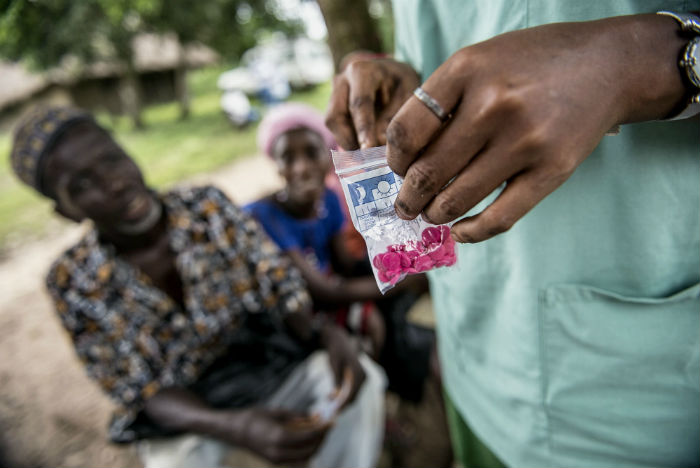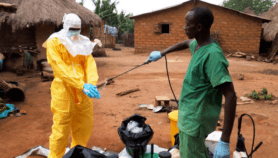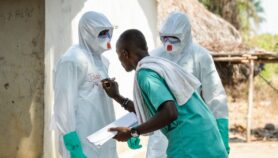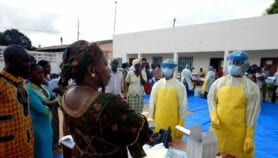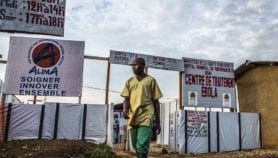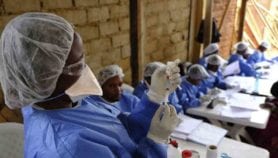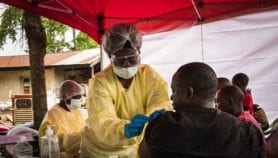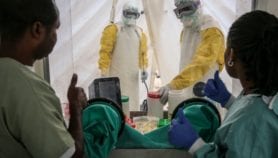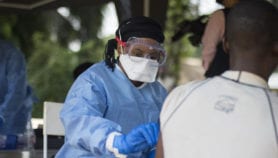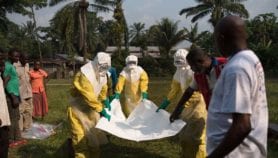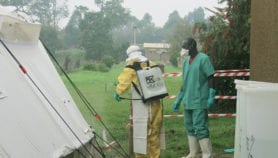By: Inga Vesper
Send to a friend
The details you provide on this page will not be used to send unsolicited email, and will not be sold to a 3rd party. See privacy policy.
[MANCHESTER] Glass vials, coolers and chicken eggs needed for vaccine manufacture are the first things lacking when a global pandemic breaks, so governments should stockpile them or be ready to rapidly increase their supply, a UK conference has heard.
With the ongoing Zika epidemic and several dangerous flu strains on the rise, global logistics must be urgently improved to beat future mass outbreaks, said a panel at the EuroScience Open Forum yesterday. This means having stocks of the things researchers and health workers need to tackle a dangerous virus, including the equipment to develop and distribute vaccines, the conference heard.
“We have learned one thing from Ebola, and that is that there aren’t a million glass vials in the world,” Andrew Witty, the chief executive officer of pharmaceutical company GlaxoSmithKline, said at the event. “There also aren’t enough coolers to store and ship the vaccines. Governments need to take much more responsibility for the production and availability of these things.”
Fellow panellist Laurie Garrett, who won the Pulitzer Prize for covering the Zaire Ebola outbreak in 1996, said that sterile chicken eggs are also always in short supply when vaccine production is ramped up quickly. These eggs are needed to make vaccines against influenza strains, but it can be hard to get them to the manufacturers when airports and shipping routes are shut down to prevent an epidemic from spreading, she explained.Delays in reacting to epidemics can be disastrous for organising the response, the audience heard. Ebola, for example, was identified in Guinea in December 2013, but the WHO only declared the outbreak as an international health emergency the following August.
As a result, important logistical processes to produce and ship the equipment needed to tackle the West African outbreak were delayed, the panellists said. An estimated 11,000 people died from the disease.
“We have learned one thing from Ebola, and that is that there aren’t a million glass vials in the world.”
Andrew Witty, GlaxoSmithKline
The panellists slammed national leaders, saying that few lessons have been learned from the Ebola crisis and the ongoing spread of Zika fever. Representatives from pharmaceutical companies said governments must prepare better for future outbreaks, as businesses cannot be expected to meet the costs of storing large quantities of ingredients and materials.
“Governments ring us and think we can magic up drugs over the weekend,” said Witty. “They need to take much more responsibility for all aspects of the production cycle.”
Paul Stoffels, the chief scientific officer at pharmaceutical giant Johnson & Johnson, added that more efforts should be made to find long-lasting vaccines for dangerous viruses, such as Ebola and MERS (Middle East respiratory syndrome), to guarantee protection when these diseases reappear.
“This is important so we can protect health workers,” he said. “We must make sure that the people who first see the patients aren’t also the first ones to die.”


